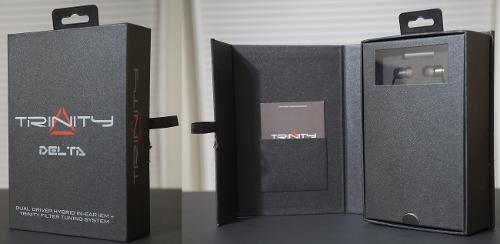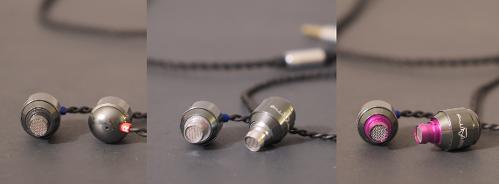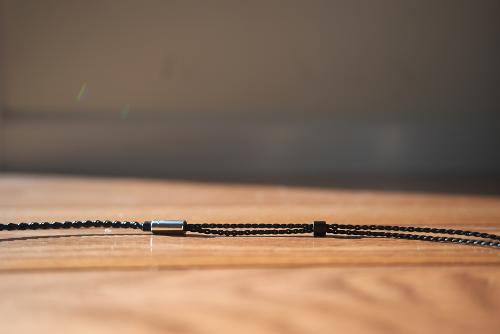
Since this would be the second review that I have put a decent amount of effort in, with the Fidue A83 review being the first, I would appreciate any feedback as well as any tips or suggestions so that I can improve the quality for future reviews.
Earlier this year (2015), the Trinity Audio Engineering introduction thread had just opened up, so I decided to take a visit to that thread. Trinity Audio, at the time, was planning a Kickstarter crowdfunding project for three IEMs; the Hyperion, the Techne, and the Delta. Upon hearing that the IEMs were designed with the help of several reputable reviewers, I was interested to what the final result would be. I joined the Kickstarter fundraising project for the Deltas, and had my hands on them after returning from my trip during early August. Initially, the Deltas were often left untouched. However, I came to enjoy and appreciate the Deltas, especially for their price.
About Me
I am (as of 2015 - 2016) a high school sophomore who listens to music daily. My IEMs usually overtake my headphones for since I move around a lot. I often do casual listening, and listen in both quiet and noisy areas. As of right now, my main portable setup is the Fiio X5 with three IEMs (Fidue A83, Earwerkz Supra 2, Dunu DN2000J, and the Trinity Audio Deltas), although I sometimes use a Samsung Note 5. In my house, I listen from my computer to a Schiit Modi2/Magni2 stack, with either the AKG K7xx or one of my IEMs. My source files include streaming from Youtube/Soundcloud, 320 kbps mp3s, and some other files such as WAV or FLAC. A majority of my music is in the electronic genre (EDM, house, etc.), but there are a few other songs of various genres and a small collection of music score soundtracks of various genres like rock and jazz. My hearing extends only up to 14 khz and I have a mild tinnitus as well. My ability to describe sound is a bit lacking as I do not know all of the terminology that many people use here.


My best attempt to repackage the Delta
Packaging and Accessories
The Delta's packing is exceptional. The cardboard box that Trinity Audio sent to me was pretty beat up, but the product box as covered in a plentiful amount of bubble wrap, protecting the product and impressing me. The product box has a magnetic cover and a fabric tag that opens up like a book. Opening it up, the left section contains a small paper of instructions and the right section has a cardboard cover with a small window, showing off the Deltas and the filter carrying case. Lifting the cover up, you are presented with everything placed inside a piece of foam with the proper cut-outs for everything.
Here are the specifications and accessories that come with the Deltas.
Specifications
| Accessories
|
[size=inherit]Driver Type: Balanced Armature Driver and 8 mm Dynamic Driver[/size]
3x Interchangeable Filters (There should be a fourth filter now)
Impedance: 16 Ohms (Ω)
Sensitivity: 110 +/- 3 dB
Frequency response: 20 - 20,000 Khz
Cord Length: 1.2 Meters
Jack Type: Gold plated 3.5 mm
| 4 Pairs of Silicon tips (S, M, L)
2 Pairs of Memory Foam tips (Different Sizes)
1 Pair of Double Flange Silicon tips
A Carry Case (That can be zipped up)
New Deltas will now have 4 pairs of tuning filters
An angled 3.5 mm adaptor jack
A shirt clip
|
The accessories provided are very satisfying. You get a good selection of eartips from the package, along with a carrying case, a shirt clip, and an angled adapter jack. The shirt clip and carry case are very helpful, with the shirt clip being able to reduce microphonics and the carry case having a section for the Deltas and a pocket for various smaller accessories. The angled adapter jack will help with portable use and reduce any possible strain on the cable jack. The one that came with my Deltas needed to have its side pushed down into my X5, or else there would be some channel imbalance. The carry case is not a hard shell case, but should easily protect the Deltas in most situations. It also has a pocket on one side to carry some accessories, but it is pretty loose, so smaller items will fall out. Aside from some minor issues, the packaging and accessories are plentiful and functional.


Pictures of the carrying case, angled adapter jack, and shirt clip.
Design and Build
Note that I have the Delta version that does not have the microphone, as the microphone version has a different cable.
The Deltas have a barrel-like shape with a cable down design. The cable can be worn over-ear with no problems, and wearing it like so would reduce microphonics as well. If you have the non-microphone version of the Deltas, you will have a dark black, braided cable. This will actually impress many people who usually use mainstream products. I have been used to IEMs with braided cables, but it will feel nice if you have never had one before. The cable cinch of the Delta is a little harder to move up and down the cable, but holds its position very well. The cable is fairly prone to microphonics, so wearing them over the ear and using the shirt clip should lessen problems with cable noise to normal levels.
A more unique design aspect of the Deltas is the tuning filter system. You have different types of filters that can screw in and out of the Delta's housing, and those filters will have an effect on the sound. The sound is adjustable per-filter. As for build quality, the Delta is very impressive. The cable is strong and tough, and the strain reliefs on the housing are small, but they are tougher than they look. The housings, y-splitter, and cable jack are all metal, with the jack having a metal spring in place of a strain relief. The Deltas are plenty strong enough to withstand regular use.
Aside from being tough, the Deltas are also beautiful. The dark grey aluminum housings, black braided cable, and metal build make the Deltas into a very compelling and premium product. The only remark I have for the Deltas would be the cable microphonics, but even the microphonics are easily manageable and not even that significant of an issue to begin with. Otherwise, the Deltas will be hard to beat for its combination of durability and aesthetics, even for higher up tiers of IEMs.


Left: The main cable of the Delta (Below the Y-Splitter) Right: Cable above the Y-Splitter
Fit and Isolation
The Delta's have a barrel-type housing shape, which for me, allows the fit to be simple and easy. However, everyone's ears are different, and fit is more of a personal aspect. My left ear is just a little smaller than the right and has a weirder angle, which makes fit harder for deep-insertion IEMs. The Deltas fit just fine and I can put these in my ear quickly and take them off as well, although the round body made doing that a little harder at first. I use the the large stock silicon tips and have no problems with comfort. In case I want to wear these over the ear to reduce microphonics, that would be easily achievable. The Deltas go into my ears deeper when I do this. So for me, the fit is just plain simple; I could wear these for a long period of time.
The isolation of the Deltas are pretty average due to the vent outside of the housing. I could wear these in noisier environments like the airplane, but I wouldn't be able to drown out the sound too much. However, turning up the volume a little bit should make these work well enough for extremely noisy environments. I would take foam tips to get as much isolation as possible, although some people may not find foam tips convenient. The isolation isn't much of a problem; the Deltas can be enjoyed in most places, just like my other IEMs.
The Y-Splitter and Cable Jack
Sound Quality
Much of this section is composed of various notes made during a few comparison sessions between the Deltas and my other IEMs. Most of the listening was done on the Fiio X5, but the Schiit stack also played a major role in this section, even though I listened less with them. I only have three filters as I have the Kickstarter version, so I will not be able to cover the gold filters. Otherwise, the Deltas that I have should be the same as the newer versions. The gunmetal filters that came pre-installed on the Deltas by default was what I listened to the majority of the time, so I'll cover the sound with the gunmetal filtrs and then talk about how the silver and purple differ from the gunmetal.
The Deltas have, what I think, a natural signature, but has some extra emphasis on the mid-bass. The low end provides good extension and layering, and I liked impact of the mid-bass. The low end works well for EDM and has some fun in it. However, sometimes I find the mid-bass to be a little too much, as it may stand out a little too much depending on what you listen to. During my initial impression, I believed the Deltas to have recessed mids, but that was not the case after comparing the Deltas with my other IEMs. The mids are only a little bit recessed, but are fuller and clearer than what I initially thought. The vocals maintain, for the price, excellent clarity. Female vocals are smooth, but a little less clear compared to male vocals. The treble remains neutral enough and non-fatiguing. Although I'd personally like the highs to have some more sparkle and airiness.
I find the soundstage of the Deltas without any problems, and it performs well in comparison to the other IEMs I have listened to. The imaging show no faults, and although the Deltas have less extension in the highs, the Deltas are still easily able to create a sense of space. As for instrument separation and details, I found both to be good. Both seemed to keep up to my higher tiered IEMs, although not reaching to their levels. The Deltas are less sensitive and harder to drive, but should work on any capable smartphone or laptop without any issue. I prefer this since the background is blacker with these and I often worry about hiss and sensitivity more than . Source problems should be no issue, and I did not find the Deltas to have any problems being extra picky.
Filters
So again, I have the Deltas from the Kickstarter project, so I only have three tuning filters, the gunmetal, silver, and purple filters. The gold filter is missing from my collection, although I do not know if I will be covering them in the future. Starting with the silver filter, I found that the silver filter had the largest effect on the low end. The low end receives a boost, and the bass hits harder as well. The midrange stayed pretty similar for me, maybe being a little more recessed at most, and the I didn't notice any significant different in the high range. Instruments that play in the lower frequencies are also more prominent. The silver filter turns the Delta into a fun IEM with the mids sounding more recessed in comparison to the bass.
For both the gunmetal and silver filters, I found myself turning the volume up for more enjoyment, but with the purple filter, I found myself adjusting the volume down to more normal levels. The purple filter adds the airiness to the treble as well as raise the highs up, but the bass is reduced while the mids stay mostly the same. After listening to the gunmetal and silver filters, only touching the purple filters months later, the change to the treble was unexpected for me, and ended up being pleasant. The low-end was tuned down from the filter, which is the only reason I didn't stick with the purple filter. Overall, the filter system does make a significant difference to the music, and while I prefer the gunmetal out of all three, I find myself wishing for a combination of the filters, so the gold filter might appeal to me, as Trinity Audio describes it as a mix between gunmetal and purple.
The sound from the Deltas are impressive, even before factoring the price in. With the price in, whether its the Kickstarter price or MSRP, the Deltas present very great value. The other IEMs in my collection, often categorized in a higher tier than the Deltas and pricier, manage to best the Deltas in more areas with less drawbacks, but they are more difficult to afford. The Delta's sound quality competes with higher tiered IEMs at a lower price.



The three filters side by side.
Conclusion
The Trinity Audio Delta, as a whole, contains the majority of the aspects of IEMs of a higher tier (like the cable, accessories, and excellent sound) and does it with good value. Although I find the sound of such IEMs better than the Deltas, the difference is not as significant as the price gap. I consider the Deltas a good job from Trinity Audio and a positive result from the collaboration from the reviewers. Aside from a few minor issues with the angled adapter jack/case, the Delta makes for a solid product. The Trinity Audio Delta is an ace in value, especially because of the similarity belonging to more premium products. If Trinity Audio's future releases feature this kind of quality, especially for the price, then I will be very interested.


Thank you for reading my review! Sorry about the placement of pictures and their quality, I had to take them at nighttime with poor lighting conditions, and came up with less results then expected. I'll get better (and more) photos as soon as I can. And again, I'd appreciate some feedback!
Edit (1/1/2016): Added more photos.
















 ) or sparkly on some music. Stellar customer care from Bob.
) or sparkly on some music. Stellar customer care from Bob.





